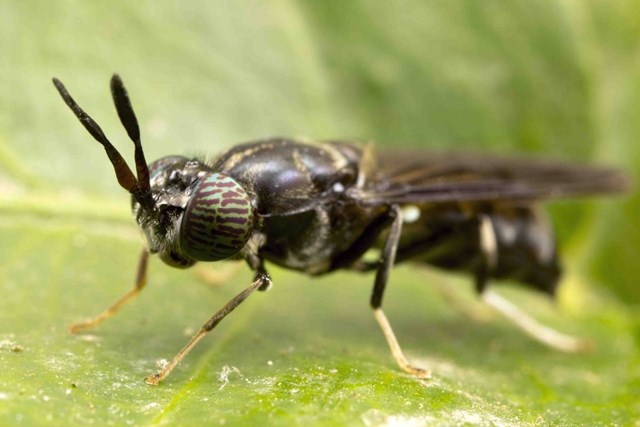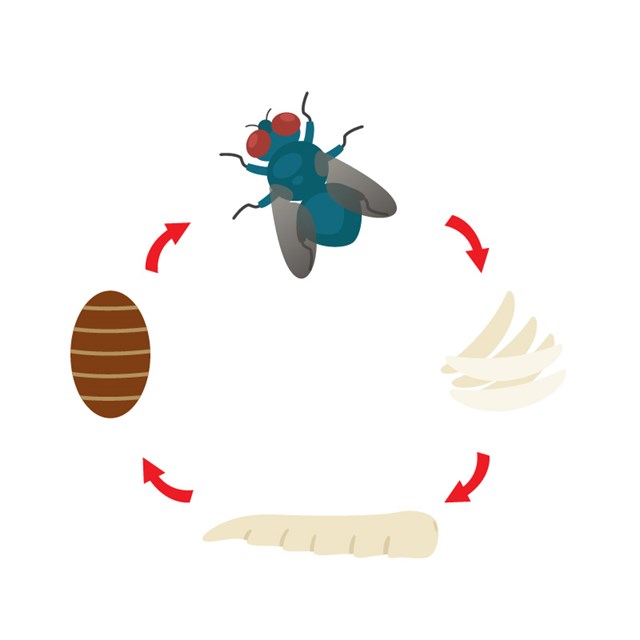
Hermitia illucens, the black soldier fly, is harmless, nutritious, and a renewable source of protein.
Flies are packed with protein and nutritious fat, and they grow quickly when fed on organic waste. One fly in particular, the black soldier fly (Hermitia illucens), could potentially provide an alternative, sustainable source of protein in animal feed, and companies around the world are looking into the possibility. A new company founded by three recent Weizmann Institute of Science graduates means to advance the edible insect industry by freezing the eggs of these flies so that growers can better plan and control their yields.
The interest in edible insects has grown in recent years as it has become clear that the present use of 80% of the world’s agricultural land to feed animals for use as food is unsustainable. Black soldier flies are considered excellent candidates for alternate protein sources because they don’t bite or transmit disease, and their larvae grow quickly to thousands of times their original size – all on organic waste as such citrus peels or rotting meat. Once grown, they can be ground into flour to make a nutritious additive to animal feed.

The life cycle of a fly
The three fresh Weizmann Institute of Science graduates – Drs. Yuval Gilad, Idan Alyagor, and Yoav Politi – named their company FREEZEM. As the name suggests, they are developing a way to cryogenically freeze the fly eggs so that they remain viable. The technology for freezing fly eggs, they say, is different from that used to freeze human ova or bacteria, and they are the first to offer this development.
The idea of freezing eggs is to separate the fly’s life cycle into two parts: one, the reproductive, egg-laying stage, and two, growing larvae. This would enable the growers to focus on the correct amounts, conditions, and timing to produce the highest yields of insects. “Just as modern farmers buy seed, edible insect growers will buy frozen eggs, thaw them, and grow the larvae,” says Dr. Gilad. The global edible insect market is already estimated to stand at $100 million, but the trade in animal feed is worth around $400 billion. That means that there is a huge potential market for sustainable alternative protein sources such as insect flour. The three founders of FREEZEM are hoping that their technology will be the push that is needed to make growing flies efficient, cost-effective, and competitive in this market.
The company was conceived in WISe, the entrepreneurship club for Weizmann Institute of Science students. Drs. Gilad and Politi have been friends since kindergarten; they met Dr. Alyagor through the club. All three had wanted to move from the academic world to industry, and WISe, through meetings with entrepreneurs and industrialists, gave them essential tools for developing a business model and founding their company. They recently signed an agreement with Yeda, the technology transfer arm of the Weizmann Institute, and Yeda has invested in FREEZEM as well.
